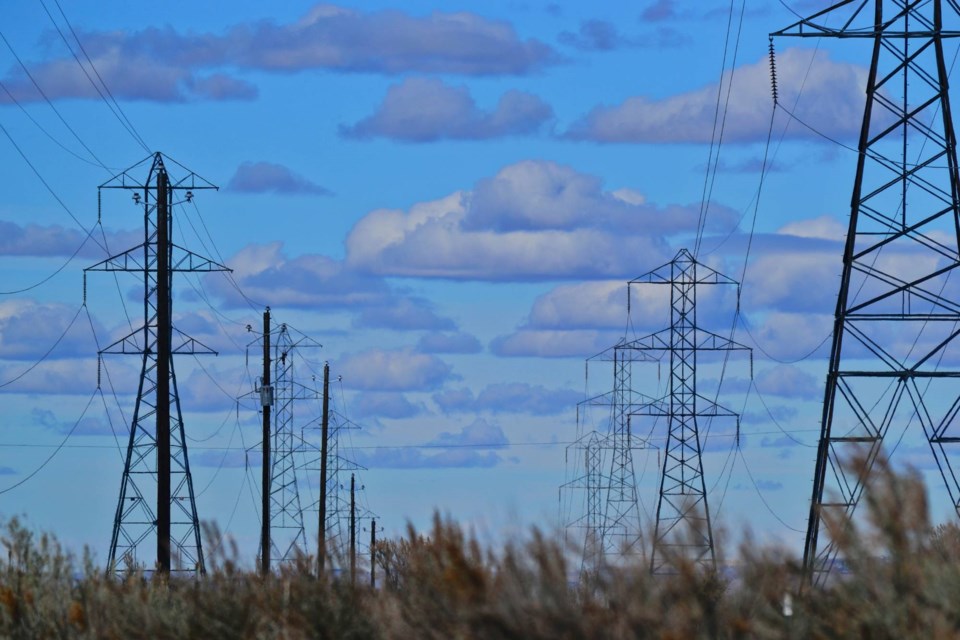A coalition of four First Nations in northeastern Ontario is making it known it wants the development contract for a new transmission line proposed to run between Wawa and Porcupine.
Taykwa Tagamou, Michipicoten, Chapleau Cree and Missanabie Cree First Nations have formed Transmission Infrastructure Partnerships 9 (TIP-9), in partnership with the U.S.-based company Ameren, with the intention of securing the tender to engineer, permit, contract, and build the 260-kilometre line, which is slated to be in service by 2030.
Taykwa Tagamou Chief Bruce Archibald said the communities were prompted to form the coalition after the Independent Electricity System Operator (IESO) released its electricity plan for northeastern Ontario last October.
Citing an increasing need for more capacity — in particular due to heightened mining and other industrial activity in the area — the IESO is calling for the construction of a new, single-circuit, 230-kilovolt transmission line between the Wawa Transformer Station and the Porcupine Transformer Station.
Archibald said it provides an excellent opportunity for area First Nations, whose traditional territories will host the line, to get in on the project at its earliest stages.
“Our communities wanted to actually participate in major projects within our territory when it comes to any kind of mining, energy or hydro development,” he said.
“We wanted to actually be owners and operators in these projects that are going to happen within our territory.”
When a company plans a development project in a traditional territory, it’s been common for First Nation communities to be offered impact benefit agreements (IBA), which typically offer some combination of training and employment opportunities and socioeconomic benefits.
But Archibald said the four First Nations are seeking something more meaningful that enables them to engage in real economic reconciliation.
Want to read more stories about business in the North? Subscribe to our newsletter.
“I go back — and probably the other chiefs also — and we’ll talk about the treaty that we signed back in 1905 in regards to sharing the resources within our territories, and that’s something that was never done before,” said Archibald, whose community falls under Treaty 9.
“Now, what reconciliation is allowing is for these relationships to build to work together on how it should have been over 100 years ago.”
After learning of the development plans, the four First Nations approached the IESO and the Province of Ontario with their idea, and secured Ameren as their financing and development partner.
The company, which has operations in Illinois and Missouri, provides electricity and transmission line development services. Its origins date back to 1902.
Although the coalition approached a number of companies, in both Ontario and the U.S., about their proposed model, Archibald said they chose Ameren because the company understood the coalition’s vision when it came to respecting the First Nations’ inherent and treaty rights.
“They can bring the technical expertise, but not only the technical expertise, the financing that's needed to do major projects such as this,” he said.
Under the proposed agreement, TIP-9 and Ameren would be 50-50 joint partners, and the coalition would retain the right to take on full ownership once financing obligations are met.
While it’s too early in the process to put a price tag on the project, Archibald said initial estimates peg its value at between $1 billion and $1.5 billion.
For the partner communities, the project would bring training and employment opportunities, but the ancillary benefits — money spent with small businesses, hotels, restaurants, and more — would spread through the region.
There’s no word from the IESO when the process will get started, so in the meantime, Archibald said the TIP-9 coalition will continue to lobby for its place at the table.
“It’s kind of an historic moment if you really look at it,” Archibald said. “The First Nations that are involved in this project are bringing something new to the table in regards to how we can work together as First Nations and government.”




